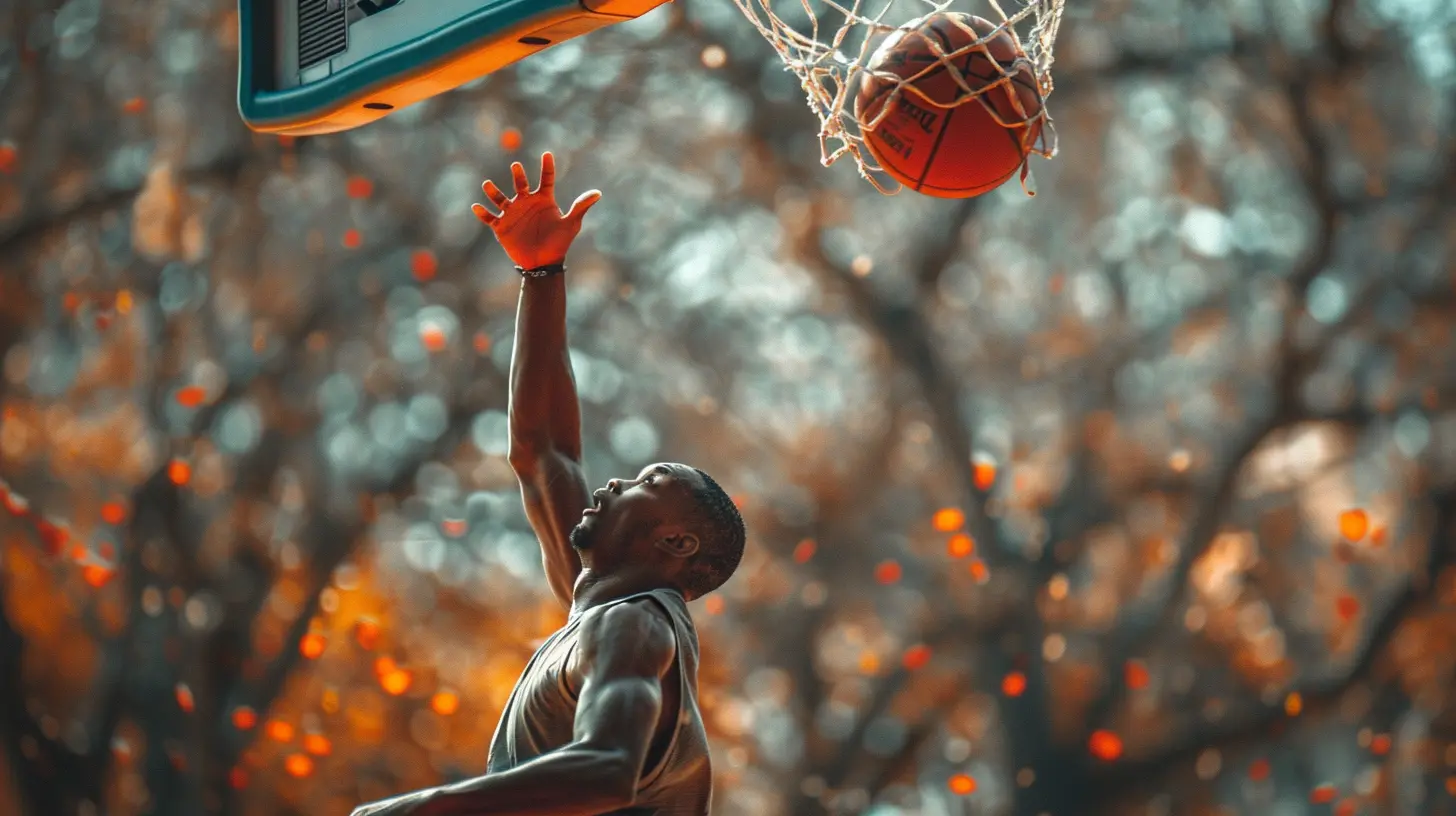The Impact of Leadership on a Basketball Teams Success
22 October 2025
Basketball isn't just about skills, tactics, or physical fitness—it's also about leadership. Think about it: every great team in NBA history had a strong leader at its core. From Michael Jordan's relentless drive to LeBron James' ability to uplift teammates, leadership is the glue that holds a squad together.
But what exactly makes a great leader in basketball? And how does leadership directly affect a team’s success? Let’s break it down. 
The Role of Leadership in Basketball
Leadership in basketball goes beyond just being the best player on the court. A great leader influences their team emotionally, mentally, and strategically. They guide their teammates through adversity, push them to exceed their limits, and set the tone for the entire locker room.But you know what? Not all leaders fit the same mold. Some lead by example, letting their performance do the talking. Others are vocal, motivating their teammates with words and energy. Both styles work, but the key is understanding how leadership can drive a team to victory. 
Why Leadership Matters in Basketball Success
A basketball team without leadership is like a car without a steering wheel. Talent alone won't get you far if there's no one providing direction. Here’s how strong leadership impacts a team’s success:1. Setting the Team’s Culture
A team's culture—its values, work ethic, and attitude—starts at the top. Leaders dictate how practices are run, how players treat each other, and how they handle both wins and losses.Think about the Golden State Warriors. When Steph Curry stepped up as the team’s leader, he embedded a culture of selflessness and teamwork. As a result, the Warriors became one of the most dominant teams in NBA history.
2. Keeping the Team Focused Under Pressure
Basketball is a game of momentum. One minute you're up by 10, and the next, the opposing team is making a comeback. A great leader is the one who calms the storm, reminding teammates to stay poised and stick to the game plan.Picture Kobe Bryant in crunch time. He didn’t just perform under pressure—he made sure his teammates stayed locked in as well. That’s leadership in action.
3. Boosting Team Chemistry
Basketball is a team sport, and chemistry matters more than we realize. A strong leader ensures that every player knows their role and feels valued. When players trust one another, they move the ball more efficiently, communicate better on defense, and perform at a higher level.Take LeBron James, for example. Wherever he goes, his teams instantly become contenders. Why? Because he understands how to bring out the best in his teammates, whether they’re superstars or role players.
4. Holding Everyone Accountable
Great leaders don’t let teammates slack off. They push them to be better, whether it's demanding harder practices or addressing mistakes head-on.Remember when Draymond Green held Kevin Durant accountable during their time with the Warriors? It might have led to tension, but it also proved that great teams need leaders who aren’t afraid to call players out when necessary.
5. Elevating the Performance of Role Players
Not every team is stacked with superstars. In fact, most teams rely heavily on role players. A good leader understands this and ensures that every player—whether they’re the main scorer or the last guy on the bench—feels important.Look at how Chris Paul turns average teams into contenders. His leadership elevates everyone around him, proving that great leaders make their teammates better. 
Different Leadership Styles in Basketball
Leadership isn’t one-size-fits-all. Players lead in their own ways, and different styles can be equally effective.1. The Vocal Leader
This is the player who constantly communicates, hypes up teammates, and brings energy to the game. Think Draymond Green or Kevin Garnett—always loud, always engaged, and always pushing their teammates to step up.2. The Lead-by-Example Player
Some players don’t talk much, but their work ethic and performance inspire everyone around them. Kawhi Leonard is the perfect example. He rarely speaks, but his dominance on the court forces his teammates to raise their game.3. The Mentor
Veteran players often take young teammates under their wing, guiding them through the ups and downs of the league. Tim Duncan played this role for the Spurs, showing younger players what it takes to win championships.4. The Unifying Leader
Some leaders excel at building relationships and making sure the locker room sticks together. Magic Johnson was a perfect example—he wasn’t just a great player; he was the heart and soul of the Lakers, ensuring team chemistry remained strong.
How Coaches Influence Leadership
Let's not forget the role of coaches in shaping team leadership. Great coaches, like Phil Jackson and Gregg Popovich, don’t just draw up plays—they create an environment where leaders can thrive.A coach who recognizes leadership potential in their players can groom them into effective team captains. They empower players to take ownership, hold teammates accountable, and drive the team forward.
On the flip side, a coach who suppresses leadership—or fails to establish it—can lead even a skilled team into dysfunction.
Leadership in High-Stakes Moments
Champions are made in the clutch. When the game is on the line, leadership becomes even more critical.Think about Game 6 of the 1998 NBA Finals. Michael Jordan didn’t just take the final shot—he orchestrated the entire moment, ensuring his team was in the right position for victory. That’s what separates good players from legendary leaders.
Can Leadership Be Taught?
Some people argue that leaders are born, not made. But the truth is, leadership can be developed with time, experience, and the right mindset.Young players can become great leaders if they:
- Learn from experienced mentors
- Take responsibility for setbacks
- Develop strong communication skills
- Lead by example in practice and games
LeBron James wasn’t always the leader he is today. Early in his career, he struggled with leadership responsibilities. But over time, he grew into a player who not only dominates on the court but also uplifts his teammates to championship levels.
Final Thoughts
Leadership is the invisible force behind every successful basketball team. It’s what turns a group of talented players into a championship-caliber squad. From setting the tone in practice to making clutch decisions in critical moments, great leaders elevate their teams in ways that go beyond the box score.Whether it’s the vocal energy of Draymond Green, the quiet consistency of Kawhi Leonard, or the inspirational fire of Kobe Bryant, strong leadership is the difference-maker in basketball success.
So next time you watch an intense NBA game, pay attention to the leaders on the court. Because more often than not, the team with the strongest leadership is the one that comes out on top.
all images in this post were generated using AI tools
Category:
BasketballAuthor:

Easton Simmons
Discussion
rate this article
1 comments
Isolde McKeehan
Leadership plays a crucial role in a basketball team's success, influencing player performance, teamwork, and overall morale on and off the court.
October 26, 2025 at 1:54 PM

Easton Simmons
Absolutely, strong leadership is vital in fostering player unity and maximizing performance, directly impacting a team's success both on and off the court.


